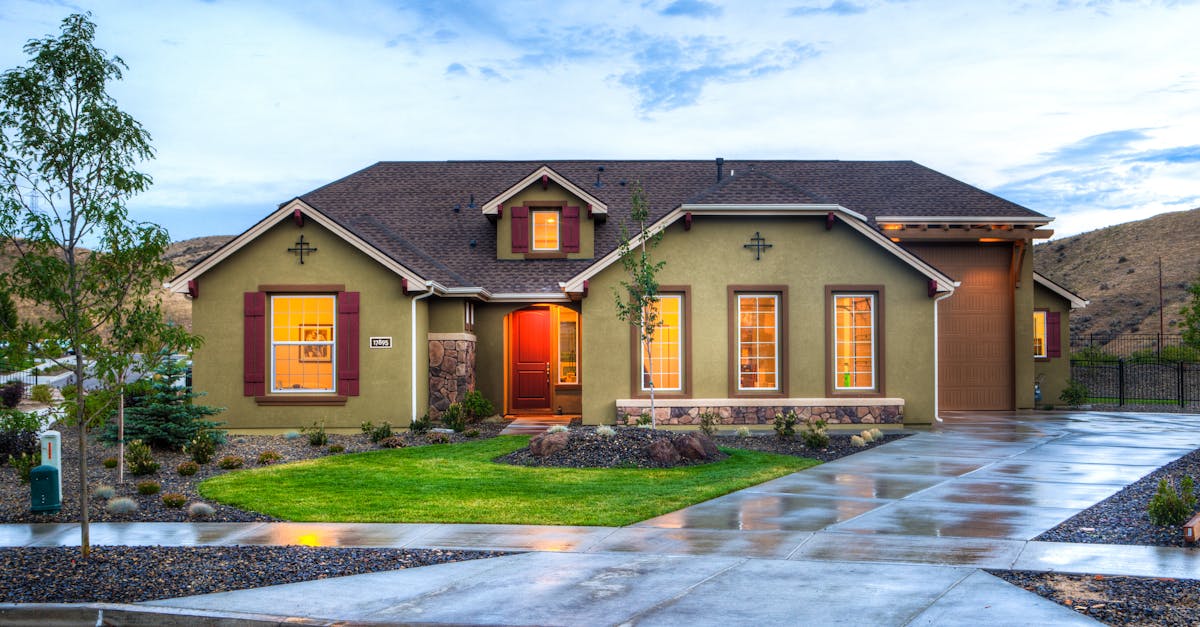
Climate Change Adaptation
Climate change poses a significant challenge to the real estate sector, impacting property values, investment risks, and overall sustainability. Strategies for climate change adaptation in real estate involve implementing measures to mitigate risks associated with extreme weather events, rising sea levels, and changing environmental conditions. Assisting with real estate environmental issues in Texas requires a comprehensive approach that considers both current and future climate projections to ensure the resilience of properties and communities.
Developing resilient strategies for real estate in the face of climate change involves incorporating green infrastructure, sustainable building practices, and disaster preparedness measures into property development and management. By enhancing building design, optimizing energy efficiency, and investing in renewable energy sources, real estate professionals can both reduce their environmental footprint and adapt to the challenges posed by climate change. Assisting with real estate environmental issues in Texas is essential for fostering long-term sustainability and ensuring the continued viability of properties in the face of a changing climate.
Resilience Strategies for Real Estate in the Face of Climate Change
Climate change poses significant challenges for real estate, leading to an urgent need for resilience strategies. Climate variability, extreme weather events, sea-level rise, and other climate-related risks are increasingly impacting real estate assets. In response to these challenges, resilience strategies are crucial for adapting to the changing climate patterns and improving the long-term sustainability of real estate investments. Assisting with real estate environmental issues in Texas, resilience strategies aim to enhance the ability of properties to withstand and recover from climate-related disruptions.
Implementing resilience strategies involve a range of actions such as conducting comprehensive risk assessments, redesigning buildings to better withstand extreme weather events, and incorporating green infrastructure solutions. By addressing vulnerabilities and enhancing adaptive capacity, real estate stakeholders can mitigate potential climate risks and ensure the long-term durability of their assets. Moreover, resilience strategies can enhance the overall value of real estate properties and contribute to building more sustainable and climate-resilient communities. Assisting with real estate environmental issues in Texas requires a multifaceted approach that integrates resilience strategies to foster a more climate-resilient real estate sector.
Energy Efficiency in Real Estate
Energy efficiency is a crucial factor in addressing environmental concerns within the real estate sector. Implementing sustainable energy practices in property management not only reduces operational costs for property owners but also lessens the overall environmental impact. By adopting energy-efficient technologies and practices, real estate stakeholders can contribute to mitigating the effects of climate change and lowering carbon footprints. Assisting with real estate environmental issues in Texas, energy efficiency measures such as efficient insulation, lighting, heating, and cooling systems play a significant role in ensuring buildings operate with minimal energy consumption and environmental impact.
Incorporating energy efficiency into real estate practices not only benefits the environment but also enhances the value and marketability of properties. Sustainable energy practices in real estate not only attract environmentally conscious tenants but also demonstrate a commitment to responsible and ethical business practices. By integrating energy efficiency measures, property owners can distinguish themselves in the market, appeal to a broader range of tenants, and ultimately contribute to a more sustainable future. Assisting with real estate environmental issues in Texas, incorporating energy efficiency measures is a proactive step towards addressing environmental concerns and ensuring the long-term viability of the real estate sector.
Implementing Sustainable Energy Practices in Property Management
Implementing sustainable energy practices in property management is crucial for addressing environmental concerns in the real estate sector. By incorporating renewable energy sources such as solar panels and energy-efficient appliances, property managers can significantly reduce carbon emissions and lower energy costs. These practices not only benefit the environment but also contribute to long-term sustainability and cost savings for property owners. Assisting with real estate environmental issues in Texas, the adoption of sustainable energy practices can lead to a more efficient and eco-friendly property management approach.
Furthermore, implementing sustainable energy practices in property management can enhance the market value of real estate assets. Buildings that are equipped with energy-efficient technologies are more attractive to environmentally-conscious tenants and investors. Property managers who prioritize sustainability and eco-friendly practices can differentiate their properties in the market and gain a competitive edge. By proactively addressing energy efficiency and environmental impact, real estate professionals in Texas can contribute to a greener future while also reaping the benefits of increased property value and tenant satisfaction.
Urban Development Impact
Urban development plays a crucial role in shaping our environment. As cities and communities expand, real estate projects have a significant impact on the surrounding ecosystems. From deforestation to habitat destruction, urban development can pose serious environmental challenges. Balancing the need for growth and development with the preservation of vital natural habitats is a key consideration for real estate developers. Assisting with real estate environmental issues in Texas requires a thoughtful approach that takes into account the long-term sustainability of these projects alongside the protection of the environment.
Moreover, the urban development impact on the environment extends beyond land use. Issues such as air and water pollution, increased traffic congestion, and the heat island effect are all byproducts of rapid urbanization. Real estate projects must incorporate sustainable practices and innovative design strategies to mitigate these negative impacts on the environment. Implementing green infrastructure, promoting public transportation, and utilizing energy-efficient building practices are essential steps in creating environmentally responsible real estate developments. Assisting with real estate environmental issues in Texas involves a comprehensive approach that considers not only the immediate effects of urban development but also the long-term consequences on the environment and the community.
Balancing Growth with Environmental Preservation in Real Estate Projects
Balancing growth with environmental preservation in real estate projects is becoming increasingly crucial in today's rapidly developing world. As urban areas expand, there is a greater need to find a sustainable equilibrium between economic progress and environmental protection. This delicate balance is particularly evident in the state of Texas, where booming metropolitan areas face the challenge of accommodating growth while conserving the natural environment. Assisting with real estate environmental issues in Texas requires strategic planning and careful consideration of both short-term development goals and long-term ecological sustainability.
Real estate developers and urban planners in Texas are actively seeking innovative solutions to address the impacts of urban development on the environment. Initiatives such as green building certifications, sustainable landscaping practices, and the incorporation of renewable energy sources are increasingly being integrated into real estate projects to mitigate environmental harm. By prioritizing environmentally conscious practices in real estate ventures, developers can contribute to the preservation of Texas's natural resources while meeting the growing demands of urban expansion.
FAQS
What are some common environmental issues faced by real estate properties?
Some common environmental issues faced by real estate properties include climate change impacts, energy inefficiency, and urban development challenges.
How can real estate properties adapt to climate change?
Real estate properties can adapt to climate change by implementing resilience strategies such as flood-proofing buildings, using sustainable construction materials, and installing green infrastructure.
What are some energy efficiency practices that can be implemented in real estate?
Energy efficiency practices in real estate include using energy-efficient appliances, implementing smart building technologies, and incorporating renewable energy sources like solar panels.
How can property management incorporate sustainable energy practices?
Property management can incorporate sustainable energy practices by conducting energy audits, upgrading insulation in buildings, and promoting energy conservation among tenants.
How can urban development projects balance growth with environmental preservation?
Urban development projects can balance growth with environmental preservation by promoting green building designs, creating green spaces within developments, and implementing sustainable transportation solutions.




